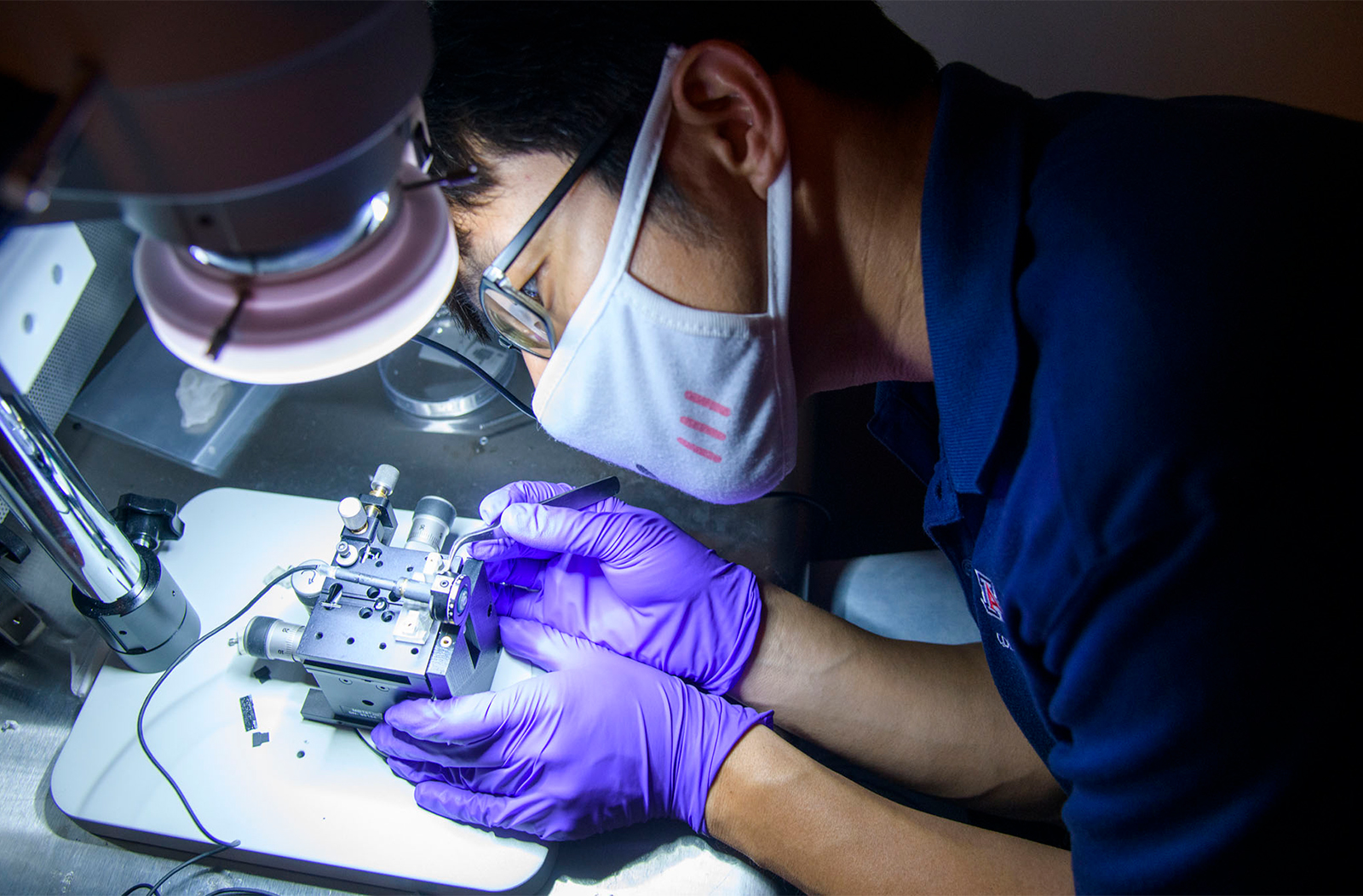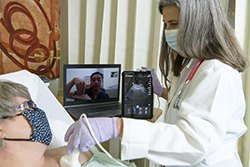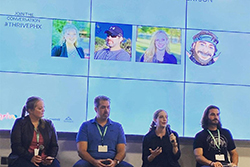
Building Connections to Improve Health Care Innovations

When Arizona native Rachel Mertensmeyer was seeking venture capital for her health care startup in 2018, she kept hearing the same discouraging refrains: no one would be interested in investing in her company if it wasn't based in Silicon Valley; it needed to be based in San Francisco to succeed. Mertensmeyer’s experience is all too common, especially for Arizona entrepreneurs in health care technology.

“HealthTech Connect is a transformative opportunity to advance health technology in Arizona,” said Michael D. Dake, MD, senior vice president for U of A Health Sciences. “From wearable technologies to sensors to implants, and all the analytics and informatics that support those innovations, the portfolio of health technology is growing. HealthTech Connect will create a collaborative network with the synergy and connectivity to increase the tempo of delivering these concepts and expanding access to quality health care for our citizens, which is a priority at the University of Arizona Health Sciences.”
Fostering Relationships to Support Growth
Despite the initial discouraging feedback, Mertensmeyer persevered, gaining inspiration from hearing the success stories of other Arizona entrepreneurs, including Heidi Jannenga, who co-founded Phoenix-based WebPT to help physical therapists run better, more efficient practices and improve patient care. Today, Mertensmeyer is CEO of Rivia Health, a software company that merges the worlds of technology and health care to improve the payment experience for both patients and health care providers.

Innovation is a word often reserved to describe new technologies, but for Roderick Tung, MD, chief of the Division of Cardiology and a member of the Translational Cardiovascular Research Center at the U of A College of Medicine – Phoenix, innovation is all about people inspiring people.
“Everyone benefits from seeing the perspective from the other side,” said Dr. Tung, who also is director of the Cardiovascular Center at Banner – University Medical Center Phoenix. “Businesses need to see the medical perspective – what are the unmet needs? And, doctors need to see what the entrepreneurial process looks like from the initial idea all the way to executing and delivering the product.”
The Future of Medicine
Dr. Tung, who joined the College of Medicine – Phoenix in August, has been involved in startups focused on app development and wearable technology in the past. He said he strongly believes in the value of community involvement and sees Phoenix, the fifth-largest city in the country, as a “hotbed of opportunity in biomedical innovation.”
His vision is to create a premier cardiovascular destination in the Southwest to deliver exceptional patient outcomes through compassionate and innovative care. As a cardiac electrophysiologist, he is keenly interested in translational cardiovascular research that takes scientific discoveries made in the laboratory and transforms them into new treatments and approaches to medical care to improve patient health.

Few have the resources of a company like Apple at their disposal, though, and the startup landscape is tough – about 90% of startups fail. By some estimates, as many as 98% of digital health startups fail.
Health care startups face additional challenges due to government regulations and a lack of scientific validation or clinical significance. In Arizona, Mertensmeyer said, it is particularly challenging to initiate discussions with health care systems, and those collaborations can be vital for success.
That’s where HealthTech Connect comes in. Through a series of networking events and quarterly meetings that bring together university innovators, industry experts and commercialization resources like Tech Launch Arizona, the U of A commercialization arm, the initiative will open doors to improve access to academic research and medicine and build bridges to unite the health technology ecosystem in Arizona.
“Innovation is obviously a buzzword, but I believe that elevating the game comes down to relationships,” Dr. Tung said. “HealthTech Connect will be a great way to build genuine, sincere, long-lasting relationships that are mutually educational and inspiring.
Media Contact:
Stacy Pigott
520-539-4152
@email
HealthTech Connect, a consortium founded by the University of Arizona Health Sciences to build opportunities for the start-up, corporate, higher education, health care, funding and economic development communities to advance Arizona’s cutting-edge innovations in health technology. This story originally appeared on the U of A Health Sciences' website.
About the College
Founded in 2007, the University of Arizona College of Medicine – Phoenix inspires and trains exemplary physicians, scientists and leaders to advance its core missions in education, research, clinical care and service to communities across Arizona. The college’s strength lies in our collaborations and partnerships with clinical affiliates, community organizations and industry sponsors. With our primary affiliate, Banner Health, we are recognized as the premier academic medical center in Phoenix. As an anchor institution of the Phoenix Bioscience Core, the college is home to signature research programs in neurosciences, cardiopulmonary diseases, immunology, informatics and metabolism. These focus areas uniquely position us to drive biomedical research and bolster economic development in the region.
As an urban institution with strong roots in rural and tribal health, the college has graduated more than 1,000 physicians and matriculates 130 students each year. Greater than 60% of matriculating students are from Arizona and many continue training at our GME sponsored residency programs, ultimately pursuing local academic and community-based opportunities. While our traditional four-year program continues to thrive, we will launch our recently approved accelerated three-year medical student curriculum with exclusive focus on primary care. This program is designed to further enhance workforce retention needs across Arizona.
The college has embarked on our strategic plan for 2025 to 2030. Learn more.